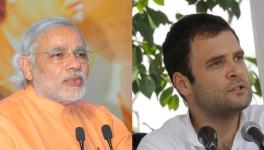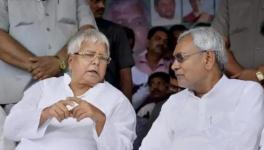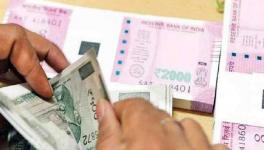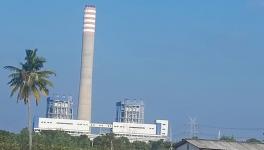Economics behind the Oil Prices in India
Even as the entire country, particularly the poor people, are reeling under heavy pressureof inflation, the UPA government has hiked the prices of diesel, kerosene and LPG by Rs 3per litre, Rs 2 per litre and Rs 50 per cylinder respectively. The reasons given for this move can be broadly categorised as follows:
1. The prices have merely moved in tandem with the international prices.
2. The government could not take the burden for it more than what it already takes in the form of heavy subsidies for various petroleum products.
3. There is a case for deregulation of prices of these three products on the lines of petrol as it is becoming unsustainable for the exchequer and the public sector oil companies who are facing 'under-recoveries' for a long time. This step is a forward movement in that direction.
4. In a period of inflation, such increase in prices would bring the demand down and, hence, would put a downward pressure on inflation.
This note attempts to call the bluff of the government by presenting both the factual picture and the vacuous economic logic behind these arguments. The note is divided in four sections. The first section makes an international comparison of prices of petroleum products. It is found that despite deregulation of petrol, the prices in India are significantly higher than the world prices. The second section attempts to locate the reasons for this. It is found that a large portion of the retail prices that the consumers end up paying consists of taxes levied by both the central and state governments. The third section presents a brief critique of the argument of the government that it is heavily subsidising the petroleum products and hence deregulation is the only way forward. In fact, we find that government's receipts through taxes is markedly higher than the subsidies that they provide on petro-products. In the last section, we address the last point mentioned above that this step would help ease inflation.
1. International Comparison of Petroleum Prices
A case was made by the government, through the Kirit Parikh Committee report, that there is a need to deregulate petroleum products. The essence of their argument was that these products, in particular diesel, LPG and kerosene are heavily subsidised and, hence, put tremendous pressure on the Indian exchequer. If the prices instead are deregulated, they will be brought in tandem with the international prices which can be beneficial to both the fiscal policy and the consumers in general. It can be seen that nothing is further from the truth if we look at the petrol prices, which is the only product which has been deregulated.
Table 1, compiled from the latest annual report 2009-10 of the ministry of petroleum and natural gas, shows that the prices of all the products, except kerosene, are significantly higher than their respective prices in the international market. A significant thing to note is that this is true for even the 'subsidised' diesel and LPG. We will come to the question of such a dubious definition of subsidy in section 3.
“Incomplete pass-through of higher crude prices will have an impact on aggregate demand through higher subsidy expenditure, which is expansionary and can add to inflationary pressure. If we increase administered prices of petroleum products and reduce fertilizer subsidy, we allow room for some inflation. If we do not, then the consequent increase in the fiscal deficit will counter the moderating trend in aggregate demand and push inflation high anyhow. In addition, there is also upward pressure on wages. [Domestic investment, saving rates, inflow of foreign capital] post-2008 are gradually regaining their momentum. To some extent, this recovery is being held back by domestic inflation, which seems to have gained a foothold in the past two years” [Business Standard, July 07, 2011. The news report is here]
Get the latest reports & analysis with people's perspective on Protests, movements & deep analytical videos, discussions of the current affairs in your Telegram app. Subscribe to NewsClick's Telegram channel & get Real-Time updates on stories, as they get published on our website.
























